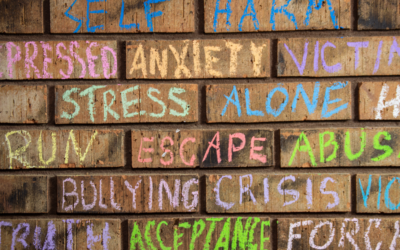Taking care of our mental health is crucial for our overall well-being as it affects our thoughts, emotions, and actions. When times get tough, seeking guidance is natural, but not all advice is helpful. I want to share some of the most harmful myths and misunderstandings surrounding mental health in this blog post. I aim to promote a more compassionate and informed approach to mental health by identifying and debunking these misguided notions.
Common Pitfalls: The Don’ts of Mental Health Support
“Just Snap Out of It”
It’s vital to remember that telling someone to “snap out of” their mental health struggles, like depression or anxiety, can be hurtful. It doesn’t consider how complex mental health can be and can make the person feel like their experiences aren’t valid. Dealing with mental health challenges takes empathy, understanding, and expert support. It’s not as simple as just trying harder or being more determined. We should always approach mental health issues with sensitivity and kindness.
“Ignore Your Feelings; They’ll Go Away”
Encouraging someone to ignore their feelings can be detrimental in the long run since it can lead to repressed emotions and negative consequences. Emotions serve as necessary signals that something may not be right, and disregarding them could exacerbate underlying issues, hindering the healing process.
“Just Self-Medicate.”
It’s important to understand that using drugs, alcohol, or self-medication to cope with mental health issues can be harmful and counterproductive. These actions can exacerbate symptoms, lead to addiction, and prevent individuals from seeking the help they need. Instead, seeking professional assistance when dealing with mental health problems is crucial. Remember, self-destructive behaviors can only hinder your progress toward recovery.
“Your Problems Aren’t That Bad. Others Have It Worse”
It’s common to compare challenges with those of others to gain understanding, but it isn’t always beneficial. In fact, it can cause us to feel worse about our experiences. Each person’s mental health journey is unique and meaningful, and it’s vital to recognize and encourage each other without making comparisons. Remember that everyone’s difficulties deserve support; seeking assistance is always a courageous and significant decision.
“Don’t Talk About It; Keep It to Yourself”
Openly communicating about mental health can have a powerful impact. It can help reduce stigma, increase understanding, and create support networks that facilitate healing. Silence only leads to more isolation and distress. Let’s work together to break down barriers and prioritize mental health and emotional well-being.
“It’s All in Your Head”
It’s important to understand that mental health problems aren’t simply a result of one’s thoughts. Multiple factors, like biology and environment, can contribute to these challenges. Dismissing mental health concerns as imaginary or fabricated can be inaccurate and harmful. Giving proper care and attention to those experiencing these challenges is important. Seeking help and support is fundamental for those struggling with mental health issues or those you know who might need support.
“You Don’t Need Therapy, Just Think Positive Thoughts”
While maintaining a positive outlook can undoubtedly be beneficial, it should not be viewed as a replacement for seeking professional therapy to manage mental health concerns. It is important to acknowledge that conditions such as depression or anxiety require evidence-based treatments beyond simply thinking positively. By recognizing this, we can ensure that individuals receive the comprehensive care and support they need to improve their overall well-being.
“Avoid Seeking Professional Help; They’ll Label You”
It’s important to understand that receiving a mental health diagnosis should not be feared. Through these diagnoses, mental health professionals can better comprehend each individual’s unique experience and tailor their treatment accordingly. Unfortunately, there is a lot of negativity and stigma surrounding mental health, which can discourage people from seeking the help they need. We must work together to remove these stigmas and create a safe and supportive environment for those who require mental health support.
Empowering Mental Health Support: The Do’s of Being a Reliable Ally
Be a Good Listener
One way to help someone who’s struggling is by listening to them attentively. Creating a safe space where they can express their thoughts, feelings, and worries without fear of judgment or the need to come up with solutions right away can show them that you are there. You can make a big difference in their well-being by lending an ear and making them feel heard. Remember, sometimes, all it takes is a little empathy to help someone feel better.
Educate Yourself
One way to understand someone’s mental health situation is to get more information so we can be there for them in the best way possible. Knowing what they’re going through, their challenges, and their available treatment options can make a huge difference. Plus, it helps break down some of the myths and misunderstandings about mental health that are out there.
Offer Practical Help
Individuals experiencing mental health difficulties may struggle to handle their day-to-day responsibilities. Providing practical aid, such as aiding with household duties, completing errands, or accompanying them to appointments, can reduce some of their tension and demonstrate your concern.
Respect Their Boundaries
Learning to respect the other person’s boundaries, especially when trying to be helpful, can allow them to feel more comfortable sharing with you what they need. Avoid pressuring them into conversations or actions they may find uncomfortable or distressing. It’s always better to let them know you’re there to assist, but it’s entirely up to them to decide how much and at what pace they want to engage in the healing process. Remember to be patient and empathetic, and above all, respect their autonomy and agency.
Encourage Professional Support
If you have a friend or loved one who seems to be struggling with their mental health, let them know you care and that you’re there to support them. Encourage them to seek help from a therapist or counselor, and remind them there’s nothing wrong with asking for help. If they need it, offer to go with them to appointments and be there for them every step of the way. Remember, our mental health is as important as our physical health!
It is crucial to address and dispel the myths and harmful advice surrounding this topic to create a compassionate and supportive society toward those struggling with mental health. We can achieve this through various means, such as displaying genuine empathy towards those who are going through mental health issues, listening to them without judgment, and encouraging them to seek professional help. Challenging misconceptions and promoting mental well-being, acceptance, and understanding is vital. By working together towards this goal, we can foster a more informed and caring approach towards mental health and create a more supportive environment for those who need it.










